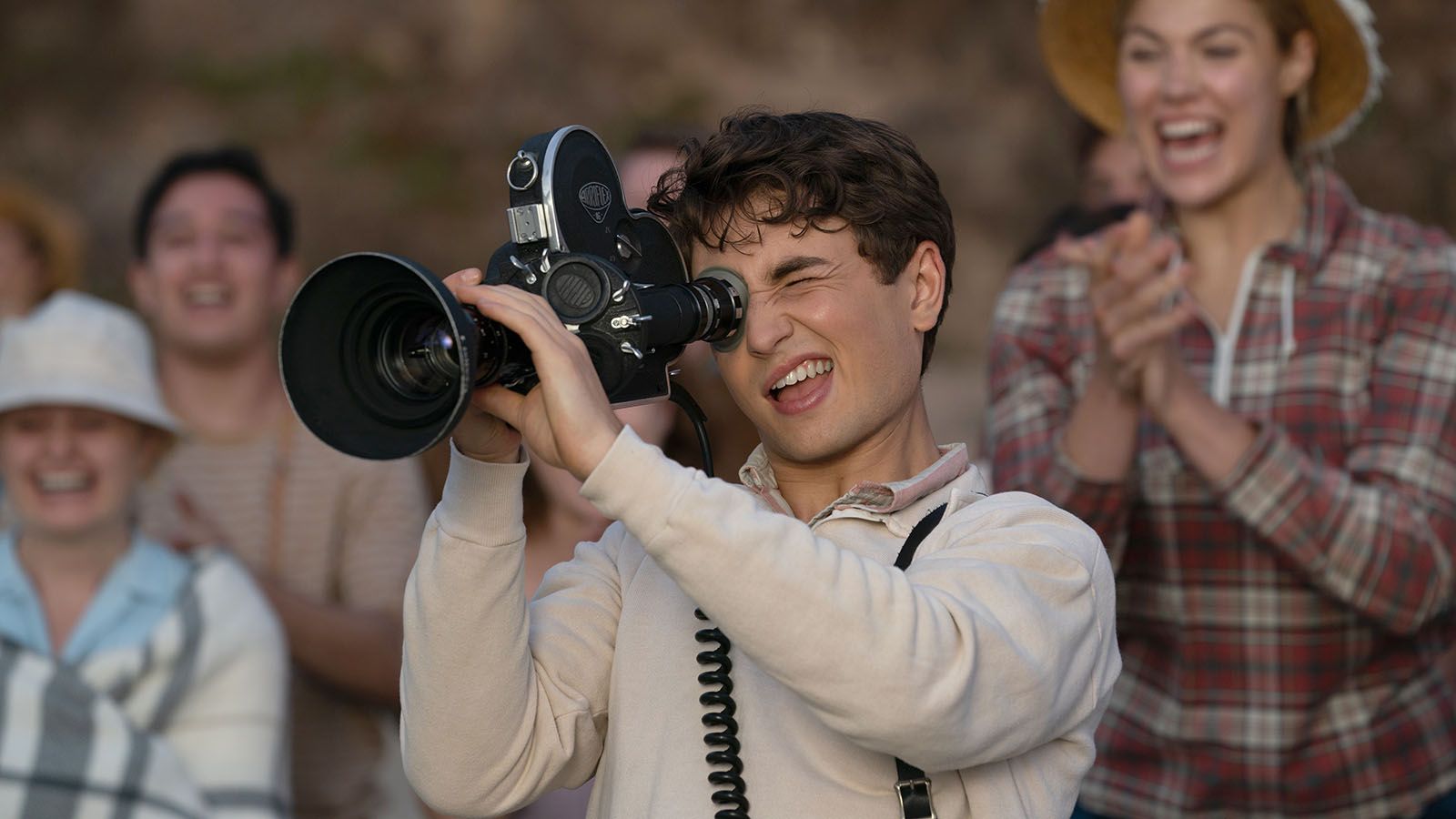On a 1999 episode of his revered series Inside the Actors Studio, James Lipton asked Steven Spielberg about a connection that he saw between Spielberg’s parents and a moment in Close Encounters of the Third Kind. Recalling that Spielberg’s mother was a musician and his father an engineer, Lipton remarked that the aliens’ attempt to communicate with humans through a computer generating musical tones could be a metaphor for how Spielberg tried to reach his parents through their divorce. Spielberg was surprised not only that Lipton put this together, but that he himself had not until that very moment.
All great filmmakers put pieces of themselves within their stories, but with his 34th movie The Fabelmans, Spielberg finally tells his most personal story yet: his own.
The film revolves around young Sammy Fabelman (Gabriel LaBelle), a stand-in for Spielberg, who we first meet as he heads into a movie theater with his mom, Mitzi (Michelle Williams), and his dad, Burt (Paul Dano), to see 1952’s The Greatest Show on Earth. Sammy is frightened, but entranced by a train crash set piece toward the film’s conclusion, which he attempts to recreate with a model train set and 8mm camera at home. So begins Sammy’s fascination with filmmaking, which continues into his teenage years as he makes silent pictures with his Boy Scouts and archives his high school class’s beach-set Senior Ditch Day. But while shooting footage of his family on a camping trip, Sammy uncovers evidence of an affair that has seemingly eluded others but can’t escape his watchful camera.
The Fabelmans doesn’t quite have enough conflict to justify its stout 151-minute runtime, but it has a handful of knockout scenes where Spielberg and his co-writer Tony Kushner make the most of their decadeslong collaboration. One such moment occurs early, with young Sammy projecting his first movie onto his hands as a way of seeing it, but also as a visual metaphor for his desire to control his initial fear of the sequence. Another juxtaposes a shared line of dialogue between Sammy and his father during two different conversations, spliced together with a playful cut which underlines that the subject of the latter conversation is a film editing machine. Elsewhere, Judd Hirsch and David Lynch pop up in small but unforgettable roles that pepper the film with gruff wisdom that Sammy is able to apply to his life and work.
Spielberg also uses The Fabelmans as a way to explore the alienation he felt as part of a Jewish family who moved around routinely and sometimes ended up in places where they weren’t well-received. This presents itself in more subtle ways when Sammy is younger, as when he notices that their house is one of the few darkened ones among a sea of Christmas-lit homes in their neighborhood. But more blatant antisemitism reveals itself during his high school years, and while it’s difficult to watch Sammy be the target of bigoted bullying, the ways that he thwarts his cruel classmates’ efforts are unexpected and empowering. There is some respite with a love interest played by Chloe East, who is a devout Christian but finds something ineffably inviting about Sammy.
In terms of performances, Williams certainly has the most room to play as idiosyncratic matriarch Mitzi, whose antics suggest mental health issues that are touched upon, but not thoroughly explored. However, Williams is a tremendously talented actress, and even if this role calls for her to act a bit more broadly than she typically does, it’s a bit of a joy to watch her cut loose some. On the other end of the spectrum, Dano is much more restrained here than he was as his raving Riddler character from The Batman this year, though he’s more unmemorable as a result. This is obviously a breakout role for the young LaBelle, and he makes the most of the opportunity without pushing things too hard. He channels a young Spielberg effortlessly, further cementing The Fabelmans as a master moviemaker’s most personalized statement yet.
New movies coming to theaters this weekend
Playing only in theaters is Violent Night, a holiday action comedy starring David Harbour and John Leguizamo depicting Santa Claus’ attempt to thwart a group of mercenaries as they attack the estate of a wealthy family on Christmas Eve.
Also coming only to theaters is I Heard the Bells, a Christmas movie starring Stephen Atherholt and Rachel Day Hughes which tells the inspiring story behind the writing of the titular beloved Christmas carol and its author, Henry Wadsworth Longfellow.
Streaming on Netflix is Lady Chatterley’s Lover, a romantic drama starring Emma Corrin and Jack O’Connell adapting D. H. Lawrence’s firebrand novel about an unhappily married aristocrat who begins a torrid affair with the gamekeeper on her husband’s country estate.
 Submit Your Event
Submit Your Event


